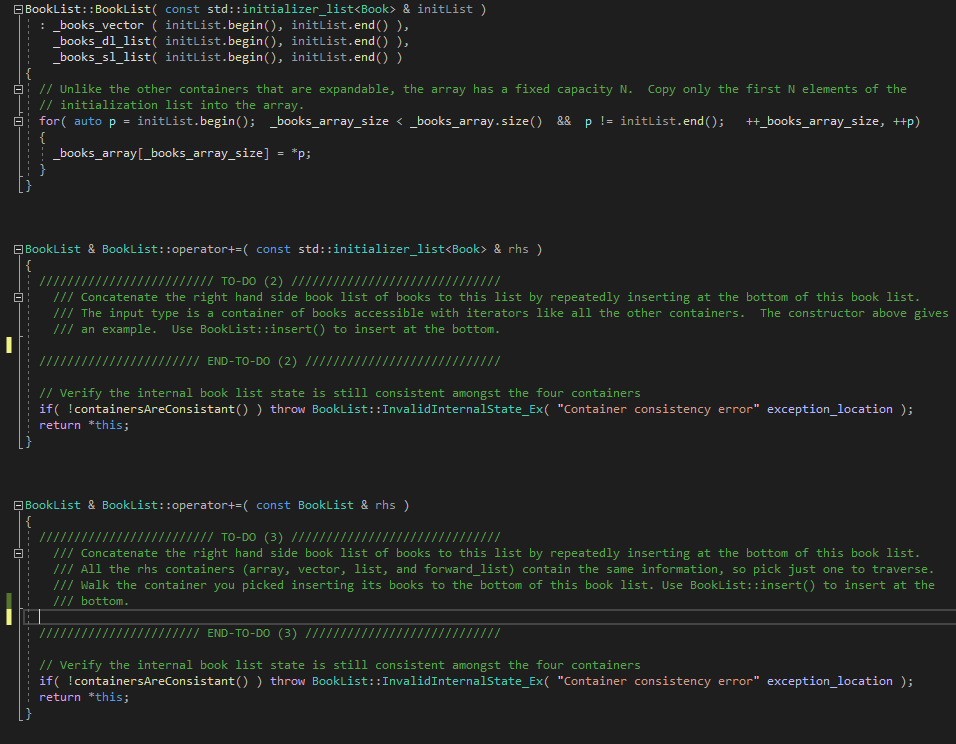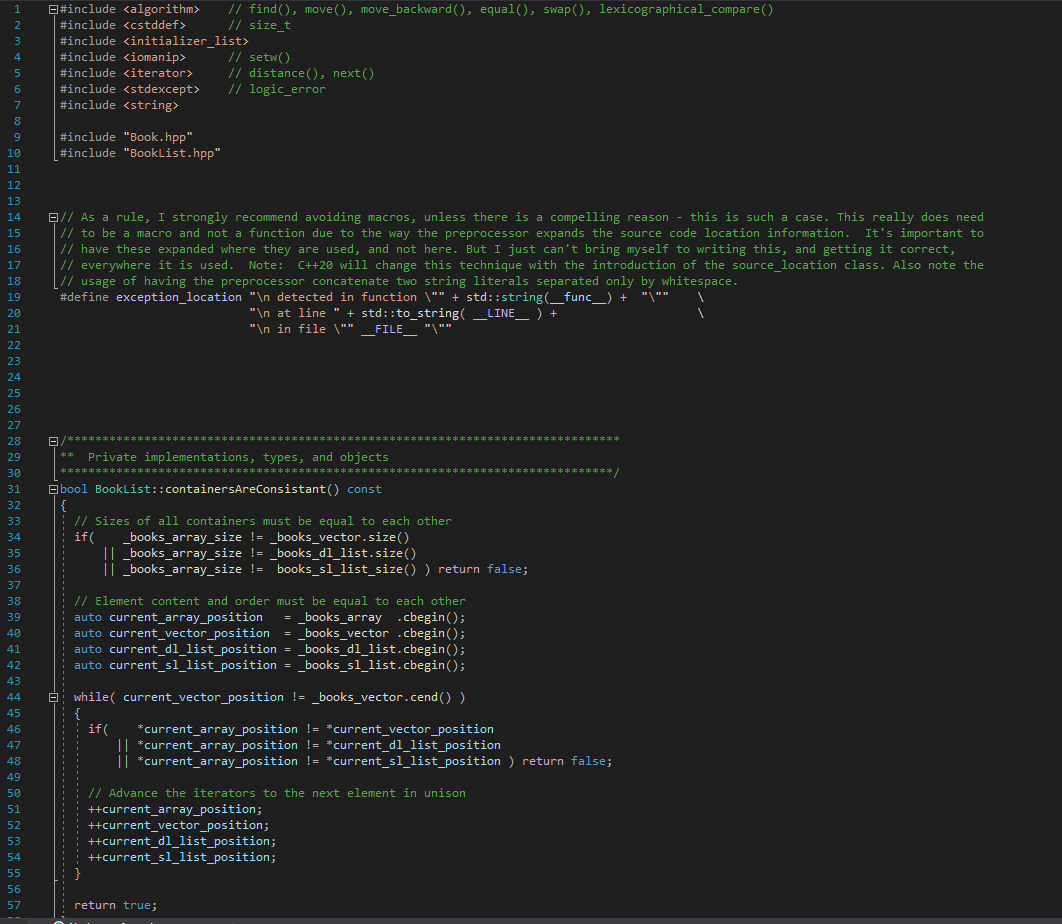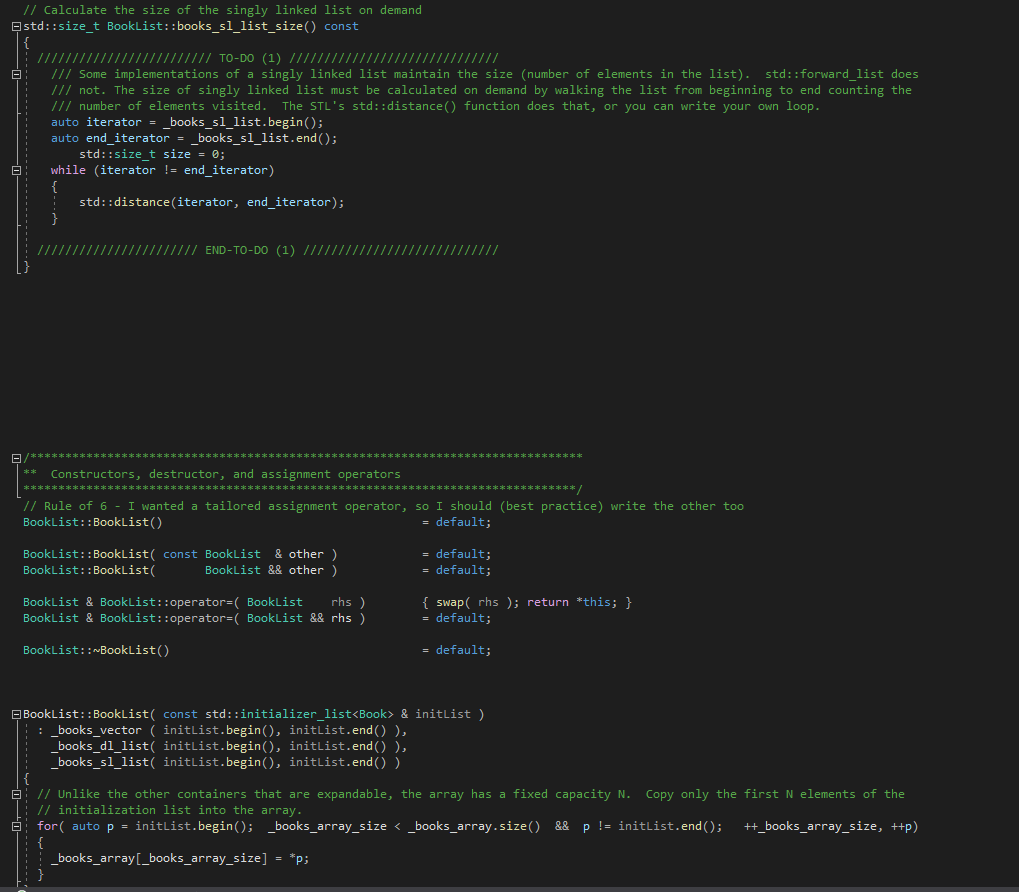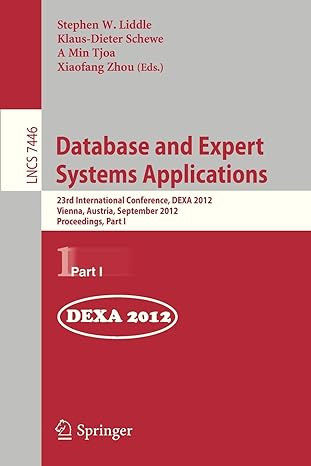Answered step by step
Verified Expert Solution
Question
1 Approved Answer
I need help with To do 2 and 3 section Booklist::Booklist( const std::initializer_list & initlist ) : _books_vector ( initList.begin(), initlist.end()), _books_dl_list( initlist.begin(), initList.end()), _books_sl_list(

I need help with To do 2 and 3 section


Step by Step Solution
There are 3 Steps involved in it
Step: 1

Get Instant Access to Expert-Tailored Solutions
See step-by-step solutions with expert insights and AI powered tools for academic success
Step: 2

Step: 3

Ace Your Homework with AI
Get the answers you need in no time with our AI-driven, step-by-step assistance
Get Started


